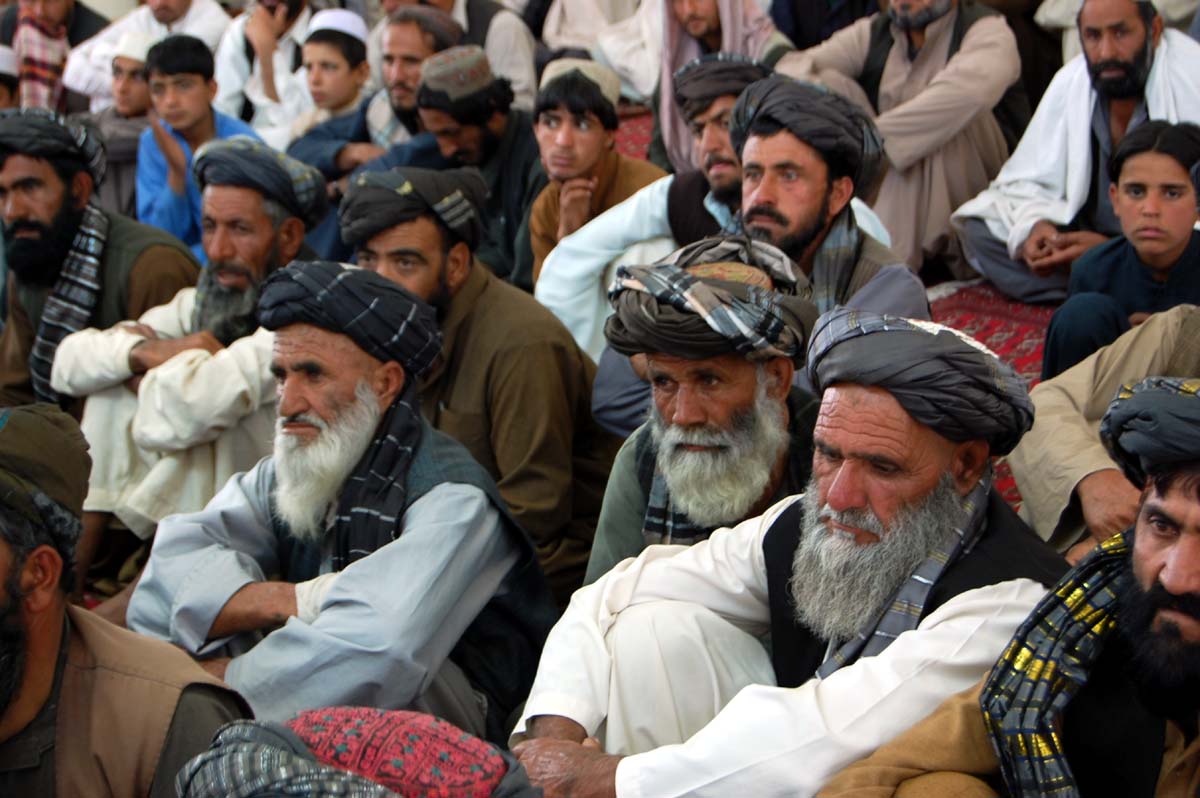
BANNU: Life in the Internally Displace People’s (IDP) camps has affected everyone; however, women, children and old age people are the worst sufferers. They want to go back to North Waziristan Agency (NWA) and lead a normal life. The worst part of this agony is the weather. North Waziristan is a hilly area, where even summers are not hot, but in Bannu 45 Celsius is an average temperature in summers.
Seventy years old Marwa is one of those thousands unfortunate people who are driven out of their homes from North Waziristan (NW) in the wake of the military Operation Zarb-e-Azb against the Taliban, that started in June 2014.
Marwa is on the verge of collapse. She is begging people around her to take her to Mirali so that she can see how her native town is faring. “Please let me go there just for a few days. I want to see my cows and buffaloes,” Marwa pleads.
Marwa is homesick and wants to go back. Already the poor quality of life in the camps at Banuu, where she is living with other Internally Displaced People has affected her health.
“When asked to leave our homes we were promised a safe return in a short time. It is almost one year and there is no sign of our return. I am worried if I would ever be able to go back to my home,” said Marwa.
Marwa Salam is not the only one suffering from chronic homesickness. Almost every IDP feels dislocated and disconnected. The feeling of homelessness in some of these people has taken toll on their mental health as well.
“My mom was healthy and full of life. Age was only a matter of numbers for her. She used to do all household chores herself. She would fetch fodder for the animals from the fields and looked after them like no one did. In one year she has become so fragile that she cannot even walk. She spends nights crying. Parting with the belongings that she had treasured all these years had not been easy for her,” said Marwa’s eldest son Tariq Khan.
In the absence of any verifiable data about the number of old-age people displaced in the military operation from NW, we can only rely on the estimate done by some NGOs suggesting that almost 200,000 people above the age of 60 had been displaced. Initially 800,000 IDPs were relocated from NW to Bannu in June 2014.
Dr. Javed Akhtar, a psychiatrist from Bannu says they all have been suffering from chronic homesickness.
“If you pull out an old tree and plant it in a new soil with an expectation that it will grow as lush as it did previously when its roots were entranced, you are wrong. Such trees wither and wither fast,” said Dr Javed. He added that these people had a long and deep association with their surrounding and for them it is difficult to adjust in the new environment, that too in camps. Their sense of belonging has shattered which is making them lonely.
Wakeel Khan, 55, is also looking forward to return. As an IDP he finds his life finished.
“Is this how human beings live? Do you call it life? We do not have homes, mosques or places to wander about. We cannot entertain guests. We cannot prepare food of our choice, or feed our children they way we want. It is sheer slavery, said Wakeel with tears in his eyes.
Another IDP, Hamid Khan, told the News Lens that his 85 years old father kept his things packed so that he could leave as soon as the government announced repatriation. However, he said, his father was increasingly losing hope, which was now reflected in his deteriorating health.
Almost every person one meets in the IDP camps at Bannu, asks about government’s plan to send them back home.
Farman Khilji, the official of Fata Disaster Management Authority, said that, the government has planned the repatriation of the IDPs, but it cannot be released on the media for security reasons.
A Psychiatrist Dr Khalid Mufti from Peshawar says that 80 percent of his patients are from tribal area and their mental health issues stem from militancy, militarisation and now displacement. He told News Lens that most of the patients from the tribal areas comprised women.
“People suffering from mental illness repeatedly complain of the fear of drones, bombing and insecurities emanating from lack of economic opportunities in their region. Many patients become schizophrenic and die due to cardiac failure or paralysis eventually,” said Dr Mufti.
But there are others, who have accepted the situation. Many have opened up businesses in Bannu or have taken up employments to begin anew.
Naheed Khan has set up a new restaurant in Bannu.
“I do miss my restaurant in Mirali. But how long can I cling to the past? I need to move ahead. I need to earn for myself, my family therefore I have started a restaurant,” said Naheed.
Some of the IDPs from Spinwam had been repatriated in March. The area is not affected by the military operation like the main cities Mirali and Miranshah.
Mirali and Miranshah have been the centre points of the military operation. No one knows exactly when these areas will be ready for reoccupation by its residents.



